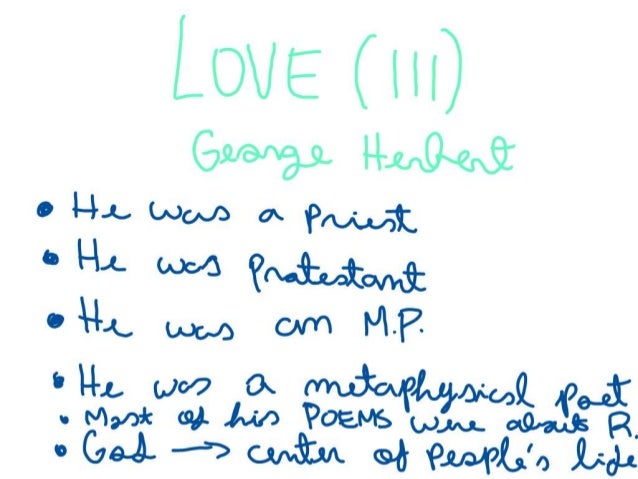

‘Spring and Fall’, Gerard Manley Hopkins.

‘I meant to do my work today’, Robert LeGallienne.‘Stopping by Woods on a Snowy Evening’, Robert Frost.‘Antidotes to Fear of Death’, Rebecca Elson.‘vitae summa brevis spem nos vetat incohare longam’, Ernest Dowson.‘Thoughts after the film Slacker’, Simon Davies.‘Say not the struggle nought availeth’, AH Clough.‘How pleasant it is to have money’, AH Clough.‘what if a day or a month or a year’, thomas campion.‘I am in need of music’, Elizabeth Bishop.‘The Peace of Wild Things’, Wendell Berry.‘I Praise My Destroyer’, Diane Ackerman.A case of working together for a better world on the basis of love. And George Herbert certainly lived accordingly to this doctrine –įrom Wikipedia – He was noted for unfailing care for his parishioners, bringing the sacraments to them when they were ill and providing food and clothing for those in need. This poetic portrait of Christianity shows God as Love as being central in the support of all in coming to terms with indiscretions. Love is seen as a compensating force for the weakness of humanity epitomised by the sacrifice in the death of Christ. Īnd finally ‘ love’ or God says you must sit down at my table and taste my meat (Jesus). Acceptance of the faulty nature of humanity and that there is a God-given correction, and in response – then I will serve (L16). Then the crucial line in the conversation, an acceptance of this fact by the guest. The creator taking responsiblity for the nature of creation. And then the taking of the blame ‘ and know you not who bore the blame’ – implying ‘ love’ or God bore the blame (the blame for his creation). God counteracting the unworthy nature of man by stating – who made you. The whole poem is a conversation between God and humanity. Included is the religious notion of mankind being guilty of sin (L2). An interesting concept that we are a guest in this world. The ‘ guest’ can be regarded as being equivalent to humanity ( unkind and ungrateful) and not worthy of the welcome but with a humble ring to the words of the guest.

‘laurels’ when it stands for ‘glory’ or ‘brass’ when it stands for ‘military officers’ Metonymy = a figure of speech in which an attribute of something is used to stand for the thing itself, e.g. And in (L13) ‘ love’ is explicitly stated as ‘ Lord’. This can be clearly seen by replacing ‘ love’ by God in the text and rereading the poem. This is defined in poetic terms as metonymy. The poem is more than just the personification of ‘ love’. The poem consists of three six line stanzas with rhyming scheme ‘ababcc’.

‘You must sit down,’ says Love, ‘and taste my meat.’ ‘And know you not,’ says Love, ‘Who bore the blame?’ ‘Truth, Lord but I have marr’d them: let my shame ‘A guest,’ I answer’d, ‘worthy to be here:’ Love bade me welcome yet my soul drew back,īut quick-eyed Love, observing me grow slack


 0 kommentar(er)
0 kommentar(er)
